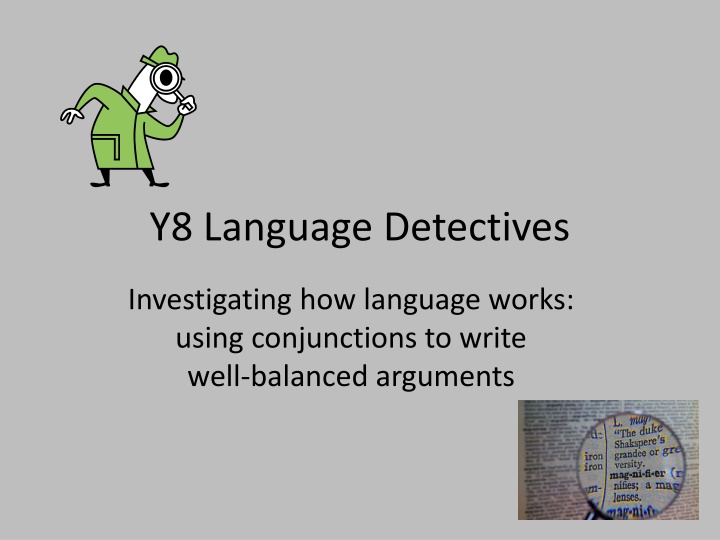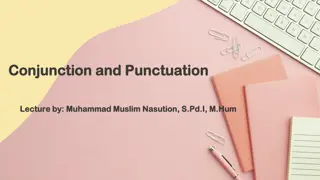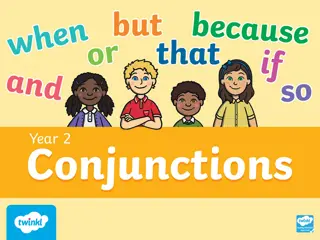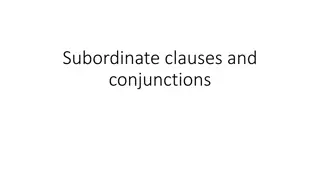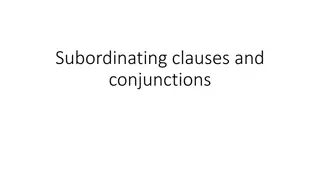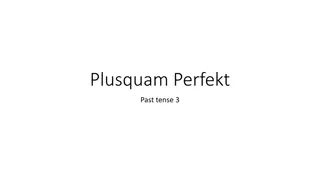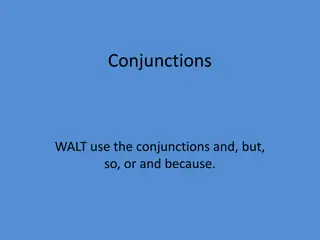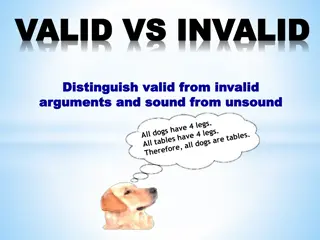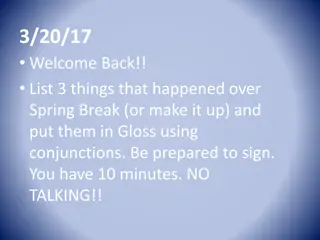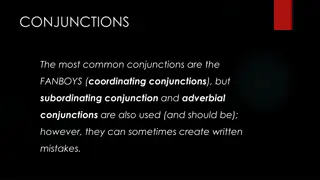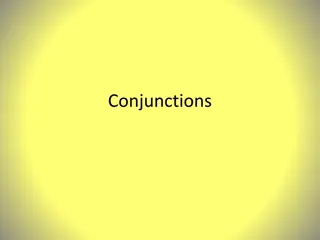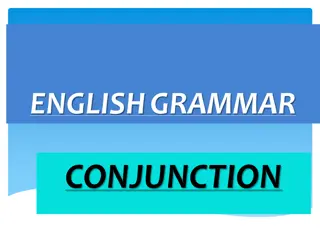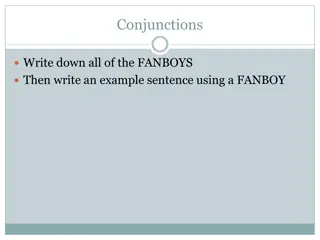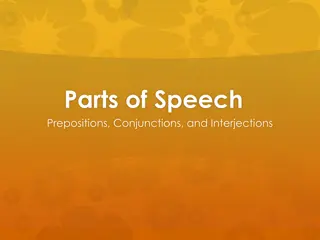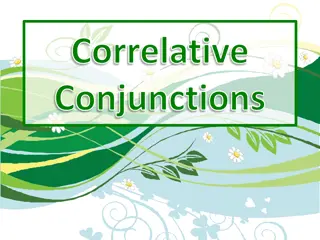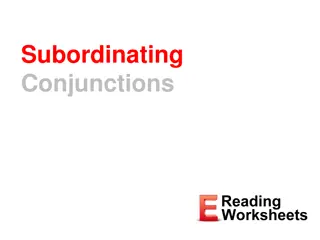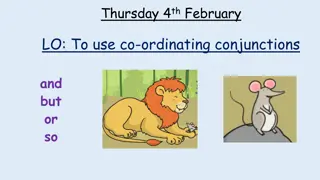Mastering the Art of Writing Persuasive Arguments with Conjunctions
Dive into the effective use of conjunctions to craft well-balanced arguments through engaging dialogues, examples, and strategies. Explore how contrasting ideas can be skillfully presented to strengthen your argumentative writing in various scenarios, from educational debates to environmental discussions.
Download Presentation

Please find below an Image/Link to download the presentation.
The content on the website is provided AS IS for your information and personal use only. It may not be sold, licensed, or shared on other websites without obtaining consent from the author.If you encounter any issues during the download, it is possible that the publisher has removed the file from their server.
You are allowed to download the files provided on this website for personal or commercial use, subject to the condition that they are used lawfully. All files are the property of their respective owners.
The content on the website is provided AS IS for your information and personal use only. It may not be sold, licensed, or shared on other websites without obtaining consent from the author.
E N D
Presentation Transcript
Y8 Language Detectives Investigating how language works: using conjunctions to write well-balanced arguments
Yes, but.... Label yourselves A and B. Take it in turns to speak. The key rule is that anything you say is true you can t deny what the other person says but you have to start each sentence with Yes, but . and come up with a convincing argument to counter what the other person says. B starts off. Topics: A is a teacher who strongly believes homework is good for you; B is a student who doesn t. A is a parent who does not want their child staying up late on a school night; B is their child who wants to stay overnight for a friend s birthday.
How can I use conjunctions to write a strong, well-balanced argument? Think what your opponent might say. Say it yourself. Argue against it. Use a word that signals the contrasting ideas. We all know that the problem of global pollution is huge, but even tiny actions can make a difference. All of us can reduce the amount of rubbish that goes into landfill sites, just by re-using plastic bags and recycling bottles and cans.
How to write a strong, balanced argument Think what your opponent might say Say it yourself Argue against it Use a word that signals the contrasting ideas Zoos are cruel and unnatural. Zoosprotect and conserve animals. While it could be argued that zoos are cruel and unnatural, many of them have successful breeding programmes which protect vulnerable species from extinction.
Words that signal contrasting ideas Coordinating conjunctions: but or yet These connect two main clauses and make each different idea sound equally balanced and important. Zoos preserve species for future generations, yet they could be considered cruel and unnatural. Animals at risk of extinction can be left to perish in the wild, or they can be protected by being kept in captivity.
Your mum says: No you cant keep a hippo as a pet. Don t be ridiculous! You say: You may think hippos........................, but actually they need very little to keep them happy. I know that hippos have a reputation for eating people, yet.................... Do you want to let hippos die out in the wild or .................?
Words that signal contrasting ideas Subordinating conjunctions: while despite although whereas These connect a subordinate clause to a main clause. The more important idea belongs in the main clause, the less important in the subordinate clause. Main clause Subordinate clause zoos are cruel and unnatural although they protect vulnerable animals
Argue to keep a pet lion.... a lion might seem a bit dangerous to keep as a pet the fact that it s dangerous will make it an excellent guard-cat, ready to scare away any burglars they tend to spend all day sleeping I m sure that if we poke it enough it will wake up and play with us they re a bit bigger than a normal pet cat just imagine cuddling up to all that soft fur in winter although whereas while but despite
Have you noticed? You can use subordinating conjunctions at the start of a sentence as well as between clauses in a sentence: Despite the fact that pollution is a huge problem to solve, even tiny actions can make a difference. It is cruel to keep exotic animals as pets, although it seems to be increasingly popular. A coordinating conjunction must go between clauses in a sentence: The problem of global pollution is huge, but even tiny actions can make a difference so we must all act now. What do you notice about commas in these sentences?
Write your own strong, well-balanced argument Either: Pick your own animal maybe a crocodile, monkey or anteater - and argue that you should be allowed to keep it as a pet. Or: Put forward your own argument about whether it is right to keep animals in zoos. Remember: Coordinating conjunctions that signal a contrast (but, or, yet, so) connect main clauses and make each different idea sound equally balanced and important. Subordinating conjunctions that signal a contrast (while, despite, although, whereas) connect a subordinate clause to a main clause. The more important idea belongs in the main clause, the less important in the subordinate clause.
